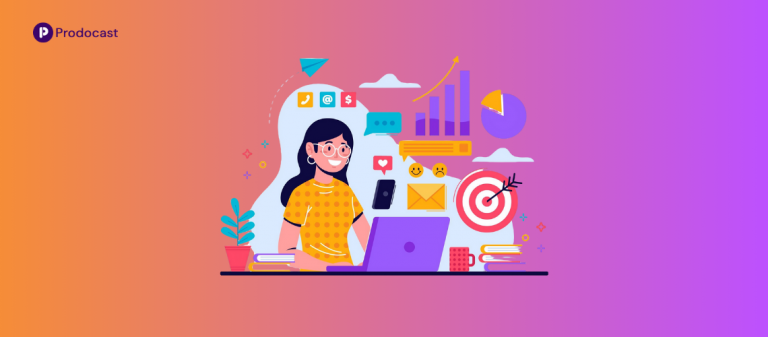As we head into 2025, B2B marketing is experiencing a transformative shift, driven by advances in technology, changes in buyer behavior, and an increasingly competitive landscape. For marketing managers and professionals, staying on top of the latest strategies and tools is crucial to remain relevant and successful.
In this comprehensive guide, we’ll explore the key B2B marketing strategies, tools, and best practices that will define 2025. Whether you’re refining your marketing plan or starting from scratch, this guide will provide actionable insights to help you stay ahead of the curve.
What is B2B Marketing and Why 2025 is Unique?
B2B (business-to-business) marketing refers to the strategies and tactics companies use to sell products and services to other businesses, rather than to individual consumers (B2C). Unlike B2C marketing, B2B focuses on building long-term relationships, and the sales cycles are often longer and more complex.
The Unique Challenges of 2025
In 2025, several factors are influencing the B2B marketing landscape:
- Digital Transformation: Businesses are continuing to accelerate their adoption of digital tools, forcing marketers to adapt their approaches.
- Shifting Buyer Expectations: Today’s B2B buyers expect the same personalized, seamless experiences they encounter in B2C marketing.
- Economic Uncertainty: Fluctuations in the global economy are putting pressure on marketing budgets, making ROI-focused strategies more important than ever.
- Sustainability and Ethics: More B2B customers are prioritizing sustainability and ethical business practices when choosing vendors.
With these challenges in mind, let’s dive into the most effective strategies for B2B marketing in 2025.
1. Key B2B Marketing Strategies for 2025
Account-Based Marketing (ABM)
Account-Based Marketing (ABM) has grown in popularity over the last few years, and in 2025, it remains one of the most effective strategies for B2B marketers. ABM involves targeting high-value accounts with personalized campaigns, treating each as a market of one. This approach helps businesses focus their resources on their most valuable prospects.
How to Implement ABM:
- Identify Target Accounts: Use data-driven insights to select the accounts with the highest revenue potential.
- Personalize Campaigns: Develop customized content and marketing strategies tailored to each account’s specific needs and challenges.
- Align Sales and Marketing Teams: Successful ABM requires close collaboration between marketing and sales to ensure consistent messaging and a cohesive buyer experience.
Content Marketing for B2B
Content marketing remains the backbone of many B2B marketing strategies. In 2025, creating high-quality, educational content is essential for building trust, showcasing thought leadership, and nurturing leads through the sales funnel.
Key Tactics:
- Long-Form Content: Invest in creating in-depth guides, white papers, and case studies that address your target audience’s pain points.
- Webinars and Virtual Events: As businesses continue to operate in a hybrid world, virtual events and webinars provide an excellent opportunity to engage with prospects and customers.
- Interactive Content: Incorporating interactive elements such as quizzes, assessments, and calculators can increase engagement and provide valuable data for lead generation.
Data-Driven Marketing
In 2025, data is the foundation of successful B2B marketing campaigns. From segmentation and targeting to measuring ROI, data-driven marketing enables marketers to make more informed decisions and optimize their strategies for maximum impact.
Key Steps to Leverage Data:
- Segmentation: Divide your audience into smaller, more targeted segments based on behavior, industry, or company size.
- Personalization: Use data to create personalized messaging and content tailored to each segment’s needs.
- Predictive Analytics: Utilize AI-powered tools to predict future buyer behavior and tailor your marketing efforts accordingly.
Demand Generation
Demand generation is the process of driving awareness and interest in your products or services, nurturing leads from initial interest to conversion. A successful demand generation strategy builds a pipeline of high-quality leads that can be nurtured and closed by the sales team.
Tactics for Effective Demand Generation:
- Content Syndication: Distribute your content across third-party platforms to expand your reach and generate more leads.
- Lead Scoring: Implement a lead scoring system to prioritize leads based on their level of engagement and likelihood to convert.
- Nurture Campaigns: Develop email nurture campaigns that provide value to leads over time, helping them move down the funnel.
Omni-Channel Marketing
In 2025, B2B buyers are engaging with brands across multiple channels, from email and social media to events and webinars. Omni-channel marketing focuses on providing a seamless, integrated experience across all these touchpoints.
Best Practices for Omni-Channel Marketing:
- Consistent Messaging: Ensure your messaging and branding are consistent across all channels.
- Cross-Channel Personalization: Use customer data to deliver personalized experiences no matter where your audience interacts with your brand.
- Unified Tech Stack: Use tools that allow you to track and analyze customer interactions across channels, ensuring a cohesive marketing strategy.
Customer-Centric Strategies
In B2B marketing, the customer experience is becoming as important as the product or service itself. By prioritizing customer-centric strategies, businesses can build stronger relationships, improve retention rates, and drive long-term growth.
How to Implement a Customer-Centric Approach:
- Customer Feedback: Continuously gather and act on customer feedback to improve your products, services, and marketing.
- Loyalty Programs: Reward your existing customers for their loyalty, offering incentives such as discounts, exclusive content, or early access to new products.
- Proactive Support: Provide timely, proactive support to help your customers solve problems before they become roadblocks.
2. Effective Tools for B2B Marketing in 2025
Marketing Automation Platforms (MAPs)
Marketing automation platforms like HubSpot, Marketo, and Pardot are essential for scaling your marketing efforts in 2025. These platforms allow you to automate repetitive tasks, such as email marketing, social media posting, and lead nurturing, freeing up time to focus on strategy and creativity.
Benefits of Marketing Automation:
- Improved Efficiency: Automation reduces manual tasks and streamlines your marketing operations.
- Personalization at Scale: You can deliver personalized content and messages to large segments of your audience.
- Enhanced Analytics: MAPs provide valuable data on campaign performance, helping you optimize for better results.
Customer Relationship Management (CRM) Software
A robust CRM system, such as Salesforce, Zoho CRM, or Microsoft Dynamics 365, is crucial for managing relationships with prospects and customers. It enables you to track every interaction, ensuring a seamless customer experience from initial contact to post-sale support.
Why a CRM is Essential:
- Centralized Data: Keep all your customer data in one place, making it easier for your sales and marketing teams to collaborate.
- Improved Customer Insights: Use data from your CRM to gain deeper insights into customer behavior, preferences, and buying cycles.
- Better Lead Management: CRMs help you prioritize and nurture leads, increasing the chances of conversion.
Analytics and Business Intelligence Tools
In 2025, data is only as valuable as the insights you can extract from it. Tools like Google Analytics, Tableau, and Power BI help you analyze your marketing data, track performance, and make data-driven decisions.
Key Benefits:
- Real-Time Reporting: Monitor campaign performance in real time, allowing for quick adjustments.
- Advanced Segmentation: Analyze data by segment to better understand how different parts of your audience are interacting with your brand.
- Predictive Analytics: Leverage AI-powered analytics tools to forecast future trends and customer behaviors.
Content Management Systems (CMS)
Content marketing plays a huge role in B2B marketing, and a reliable CMS like WordPress, Drupal, or Contentful helps streamline the process of creating, managing, and distributing content.
Benefits of a Good CMS:
- Ease of Use: A CMS allows marketing teams to publish content without requiring technical expertise.
- SEO Optimization: Many CMS platforms include built-in SEO tools, helping you optimize your content
for search engines and improve visibility.
- Content Customization: CMS platforms enable you to easily segment and personalize content for different audience segments, ensuring more targeted and relevant messaging.
AI and Machine Learning in Marketing
In 2025, AI-powered tools are revolutionizing B2B marketing by automating routine tasks, optimizing campaigns, and providing more personalized experiences. Machine learning models can analyze large sets of data to identify patterns, predict future trends, and tailor marketing strategies accordingly.
Applications of AI in B2B Marketing:
- Chatbots and Conversational AI: AI-powered chatbots can handle customer inquiries, provide instant responses, and improve lead generation efforts.
- Predictive Lead Scoring: AI models can analyze customer data to predict which leads are most likely to convert, helping you prioritize high-value prospects.
- Content Creation: AI tools like GPT-based models can assist with content generation, helping marketers produce relevant and engaging material more efficiently.
3. Best Practices for B2B Marketing in 2025
Prioritize Personalization
In an era where B2B buyers expect highly tailored experiences, personalization has become a must-have rather than a nice-to-have. By using data and marketing automation, you can deliver the right message to the right person at the right time.
Tips for Personalization:
- Segment Your Audience: Break down your target market into smaller, more defined groups based on factors like company size, industry, and purchasing behavior.
- Dynamic Content: Use personalized landing pages, emails, and website content to appeal to individual buyer personas.
- Behavioral Targeting: Leverage behavioral data, such as website interactions or past purchases, to send highly relevant content and offers.
Leverage Video and Interactive Content
Video continues to be one of the most engaging content formats, and B2B marketers are increasingly using it to educate prospects, showcase products, and share customer success stories. Additionally, interactive content like quizzes, polls, and assessments can capture attention and increase engagement.
How to Use Video in B2B Marketing:
- Product Demos: Create short video demos that show how your product solves specific problems for your audience.
- Customer Testimonials: Use video testimonials to build credibility and trust.
- Webinars and Educational Content: Host webinars to educate your audience and establish thought leadership.
Invest in SEO and SEM
Search Engine Optimization (SEO) and Search Engine Marketing (SEM) are critical components of any successful B2B marketing strategy. SEO helps your content rank higher in organic search results, while SEM allows you to run paid ads on platforms like Google and Bing.
SEO Best Practices:
- Keyword Research: Identify the keywords your target audience is searching for and incorporate them naturally into your content.
- On-Page SEO: Optimize page titles, meta descriptions, headings, and image alt text for your target keywords.
- Technical SEO: Ensure that your website is optimized for speed, mobile-friendliness, and proper indexing by search engines.
SEM Best Practices:
- Target the Right Keywords: Use highly specific long-tail keywords in your SEM campaigns to reach more qualified leads.
- Ad Copy Optimization: Write compelling ad copy that clearly conveys the value of your offering and includes a strong call to action.
- Landing Page Optimization: Make sure your landing pages are optimized for conversions by keeping the messaging consistent with your ads and making the user experience seamless.
Continuous Testing and Optimization
To stay competitive, B2B marketers must continuously test and optimize their campaigns. By regularly experimenting with different messaging, designs, and strategies, you can identify what works best and improve your marketing ROI.
A/B Testing Tips:
- Test One Element at a Time: Whether it’s email subject lines, CTA buttons, or landing page layouts, test a single variable at a time to accurately measure the impact.
- Use Data to Drive Tests: Identify underperforming areas of your campaigns using analytics, and prioritize testing those areas for improvements.
- Track Metrics that Matter: Focus on key performance indicators (KPIs) like conversion rates, click-through rates, and engagement to gauge success.
- Iterate and Optimize: Use the results of your A/B tests to refine and improve your campaigns. Repeat the process regularly to stay ahead of changing audience behaviors.
Building Long-Term Relationships
In B2B marketing, closing a sale is just the beginning of the relationship. Retaining customers and building loyalty is critical for long-term success. Implementing strategies focused on customer retention can result in higher lifetime value and repeat business.
Best Practices for Relationship Building:
- Customer Onboarding: Develop a seamless onboarding process that makes it easy for new customers to understand and use your product or service.
- Regular Check-Ins: Stay in touch with your customers through personalized emails, customer success calls, or account management to ensure they’re getting value from your solution.
- Loyalty and Referral Programs: Create programs that reward existing customers for continued business and for referring new clients to your company.
- Deliver Value Through Content: Provide ongoing value through newsletters, blog posts, and other content that helps customers maximize the use of your product.
4. Emerging Trends to Watch in 2025
AI-Powered Marketing Tools
Artificial intelligence (AI) is reshaping the future of B2B marketing. In 2025, AI tools will continue to revolutionize the way marketers analyze data, engage with prospects, and automate routine tasks.
AI-Driven Trends to Watch:
- Enhanced Predictive Analytics: AI tools will become more advanced at predicting customer behaviors and optimizing marketing strategies in real-time.
- Conversational AI: Chatbots and virtual assistants will improve, providing more sophisticated and human-like interactions that enhance customer support and lead generation.
- Hyper-Personalization: AI will allow marketers to deliver even more personalized content and experiences by analyzing deeper behavioral patterns and preferences.
Voice Search and Conversational Marketing
Voice search continues to grow, and it’s changing the way people find information online. B2B marketers will need to optimize their content for voice search queries, which tend to be more conversational and question-based.
Optimizing for Voice Search:
- Use Natural Language: Incorporate more conversational, long-tail keywords into your content that mirror how people speak in everyday life.
- Answer Specific Questions: Create FAQ sections and blog posts that directly address common questions your target audience might ask.
- Optimize for Local Searches: If your business has a local or regional presence, optimize your content for location-based queries, as many voice searches are locally focused.
Sustainability and Ethical Marketing
B2B buyers are increasingly looking for partners that align with their values, particularly in areas like sustainability and ethical business practices. Companies that can demonstrate their commitment to these principles will stand out in 2025.
How to Incorporate Sustainability into Your Marketing:
- Be Transparent: Share your sustainability goals and achievements openly with your audience. Transparency builds trust and credibility.
- Highlight Ethical Practices: Whether it’s fair labor practices, eco-friendly packaging, or energy-efficient operations, highlight the ethical and sustainable practices of your business.
- Partner with Like-Minded Organizations: Collaborate with other businesses that share your sustainability values. Joint marketing efforts can amplify your message and create stronger bonds with clients who prioritize ethical practices.
Conclusion: Navigating B2B Marketing in 2025
B2B marketing in 2025 is an exciting space filled with new opportunities, but it also requires adaptability and a keen understanding of current trends. By embracing strategies like Account-Based Marketing, data-driven personalization, and omni-channel approaches, and by using the right tools like marketing automation and AI, your business can create meaningful connections with prospects and customers.
As you plan for 2025, keep in mind that B2B buyers are more informed than ever, and they expect personalized, value-driven experiences at every stage of the buyer’s journey. The key to success lies in staying agile, continuously optimizing your approach, and building lasting relationships that stand the test of time.
Implementing these strategies will not only help you stay ahead of the competition but also drive significant growth in the coming year. Now is the time to review your marketing playbook and align your efforts with the evolving landscape to ensure that your business thrives in 2025.
Bonus Tip: Promote Your Software on Prodocast
If you’re a software developer or vendor looking to expand your product’s reach, listing it on Prodocast is an excellent way to gain visibility. Prodocast allows you to list your software products for free, providing a platform to connect with potential customers and showcase your offerings to a wider audience. By leveraging digital channels and utilizing platforms like Prodocast, you can maximize your product marketing efforts and drive more traffic to your software.
Follow us on Linkedin for more product marketing insights



